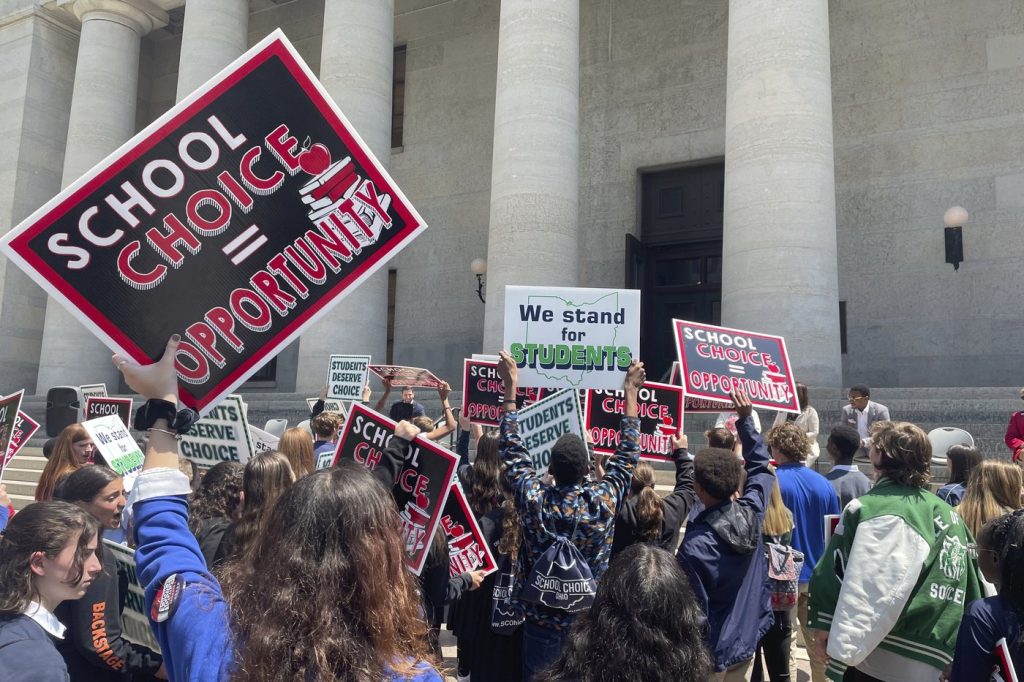State lawmakers across the United States are increasingly advocating for the allocation of taxpayer funds to cover private school tuitions and homeschooling expenses, even amid ongoing economic uncertainty. Recently, the Texas Legislature approved a significant $1 billion-per-year voucher program awaiting the governor's signature. This initiative, alongside other national efforts to expand school vouchers in states that have previously rejected them, has garnered considerable attention.
In states with established programs for subsidizing private education costs, the financial burden of these programs has rapidly increased due to slowing revenue growth. Texas is not alone; states like Tennessee adopted similar programs this year, while North Dakota faced significant legislative obstacles that nearly halted its voucher efforts with a recent veto.
State budgets necessitate annual spending plans that correspond with actual revenue. As federal funding from pandemic relief diminishes, opponents of voucher programs express concerns that these initiatives may divert critical resources from public schools, compounding the financial challenges presented by numerous economic factors.
Page Forrest, an analyst at the nonpartisan Pew think tank, emphasized that even if funding for school choice initiatives comes from separate revenue sources, it could create a sense of competition for a diminishing financial pool. This issue has become pronounced in states like Florida, where voucher programs are projected to cost taxpayers nearly $3.9 billion, amounting to approximately $1 in every $13 from the state’s general revenue fund. Similarly, Arizona is on the path to expending close to 5% of its general budget on vouchers.
Historically, school choice programs were limited mainly to low-income and special-needs students, but in recent years, more extensive scholarship and savings account programs have emerged. These changes often lead to higher short-term costs due to the tendency for initial enrollees to be students already attending private institutions and, therefore, not benefiting from the taxpayer-funded subsidies prior to the programs' inception.
The growing shift towards scholarship programs is being fueled by substantial campaign funding for voucher proponents, which has swayed previously resistant Republican lawmakers. New education financing initiatives have surfaced in states like Alabama, Louisiana, and Tennessee, reflecting the increased advocacy for educational choice following the COVID-19 pandemic and the resulting educational disruptions.
In Texas, a recent legislative measure proposes to allocate over $10,000 yearly for students attending accredited private schools, capping the expenses at $1 billion for the 2026-27 academic year. Legislative forecasts predict that by 2030, costs could potentially reach $4.5 billion annually. While this may be partially counterbalanced by savings from reduced public school enrollment, critics assert that such expenditures do not adequately address the extra financial demands faced by public education systems.
In North Dakota, GOP Governor Kelly Armstrong vetoed an education savings account proposal, citing concerns over its inclusivity and potential implementation issues. Supporters of public schools argue that pushing forward with voucher programs is ill-timed, especially given uncertainties about state finances and potential impacts on public school funding.
With Congress discussing a variety of tax cuts, including proposals from the Trump administration, advocates for school choice credits face significant competition for legislative approval. In Ohio, a proposed budget reveals a plan to increase funding for vouchers more so than for public schooling, prompting concerns that public education will not receive sufficient financial support.
Democratic state representative Bride Rose Sweeney remarked that while she does not oppose vouchers, adequate funding for public schools must be a priority. As both public and private school funding remains a contentious issue, parental advocates, like North Carolina resident Rachel Brady, argue for continued investment in scholarship programs to ensure future educational success for children.
With ongoing debates about budget priorities and financial allocations, the expansion of school choice programs continues to present complex dilemmas for lawmakers and constituents alike. The direction these discussions take may significantly impact the future landscape of educational funding and accessibility across various states.











